# webapp
-
"Corrupt" Pulseway Agents after agent updates by Pulseway Staff - Aware but no ETA of a fix.
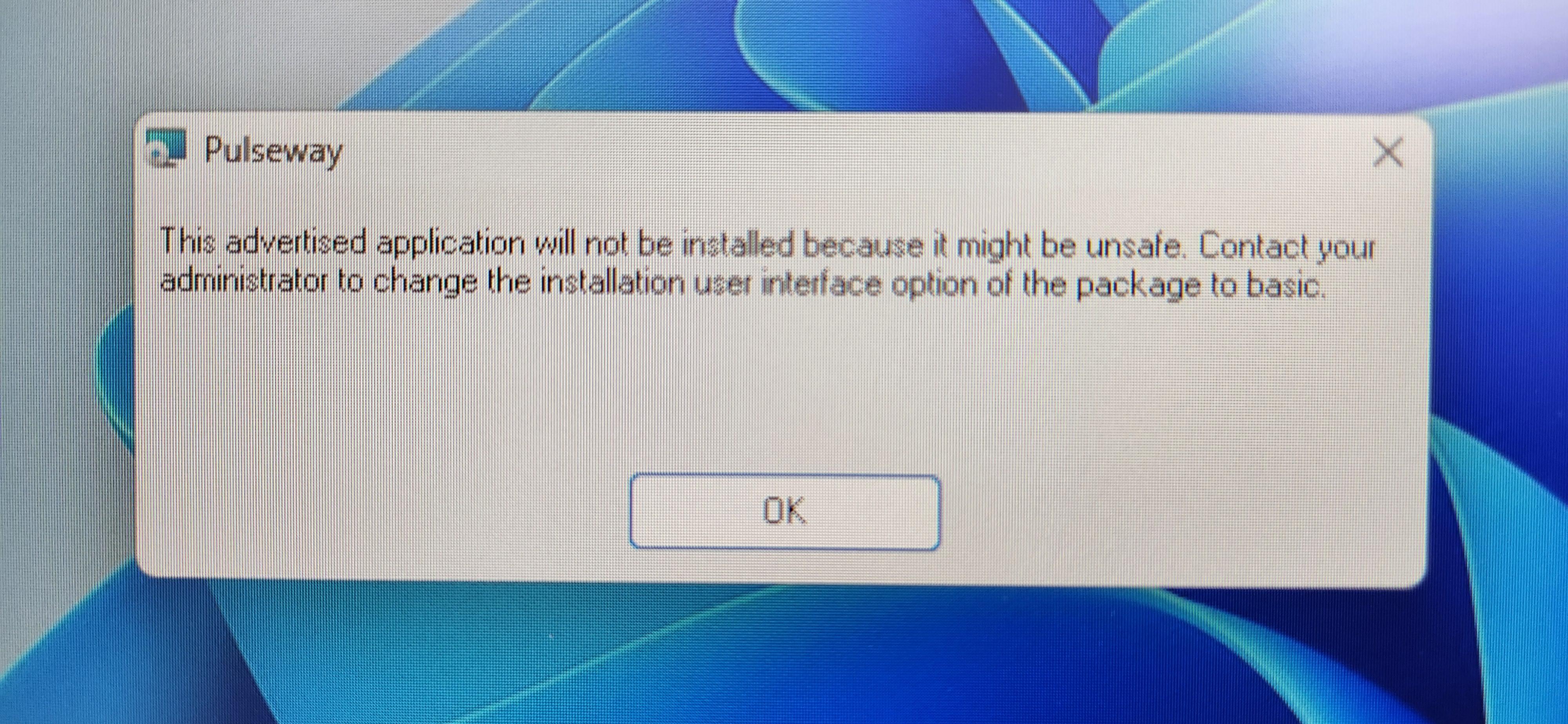 BobBrown ·
BobBrown ·- bug report
- fail
- installation
- upgrade
-
Tagged with:
- 5 comments
- 887 views
-
Add system name and script output to troubleshooter summary
- 1 comment
- 2094 views
-
Unable to create a new scope
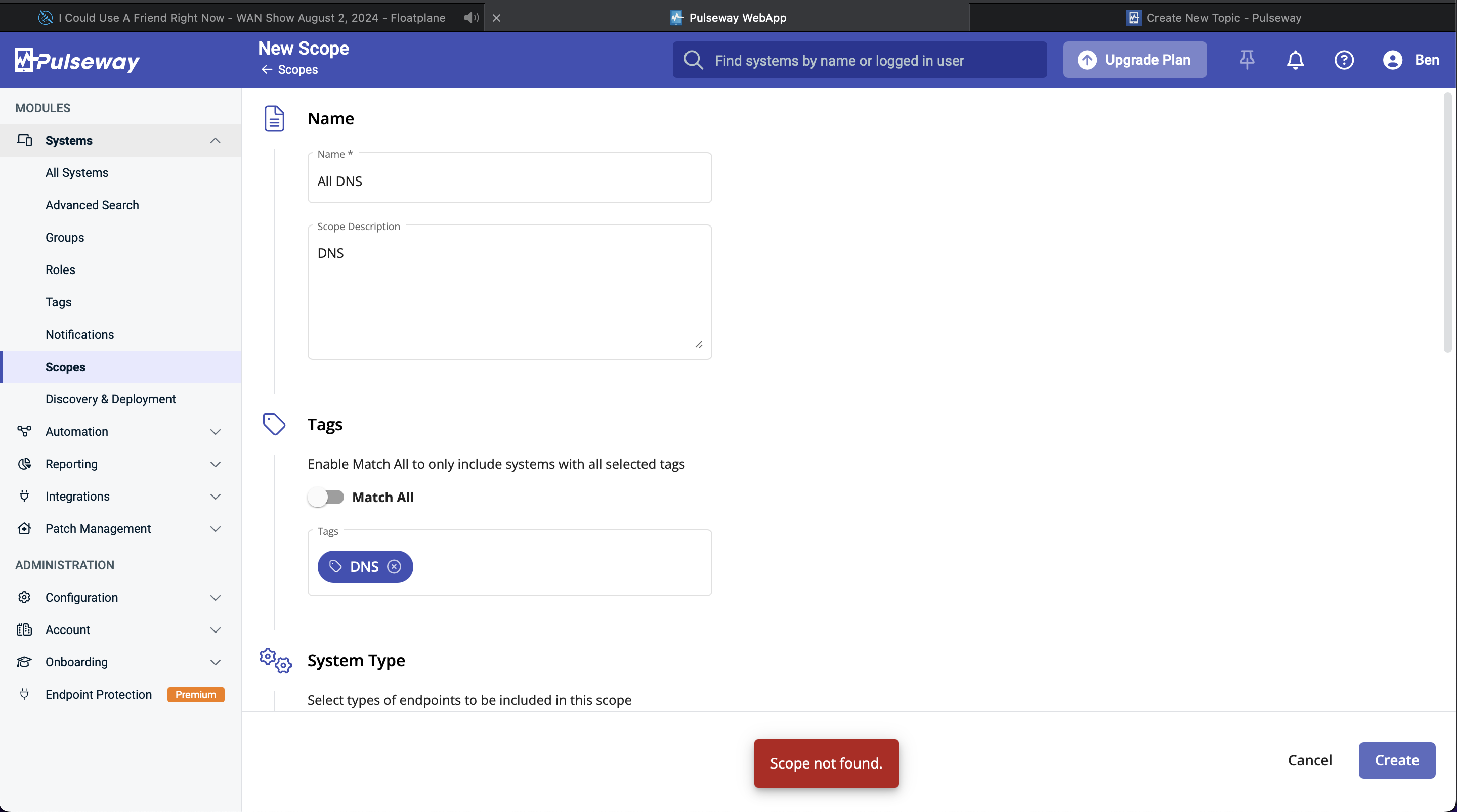
- 6 comments
- 3863 views
-
Also enable adjusting multiple tickets in Service Desk/Unknown Tickets
AXGui ·
- 2 comments
- 2306 views
-
Asset Information
- 7 comments
- 19175 views
-
Feature Request: Sorting order of the Columns in Workflow (and add column [Description])
-
Feature request: Make it possible to add disks to manual added hardware assets
-
Feature request: Make it possible to have manual added hardware assets added to a ticket automaticly
-
Notification message cannot be empty.
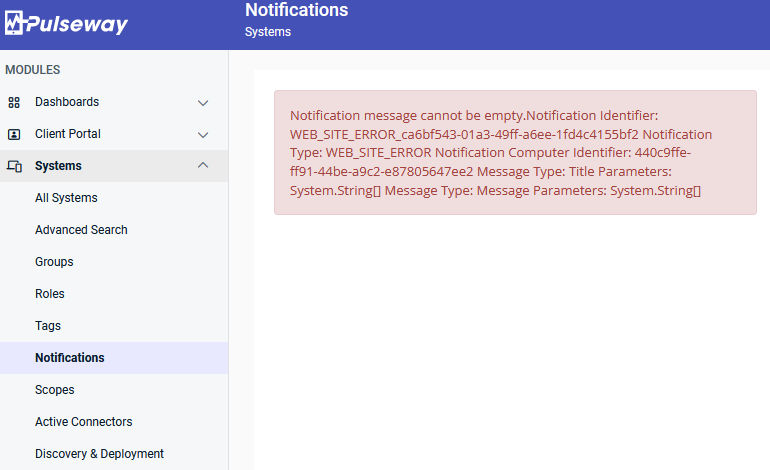
- 1 comment
- 2512 views
-
BitDefender: Endpoint deployment and management
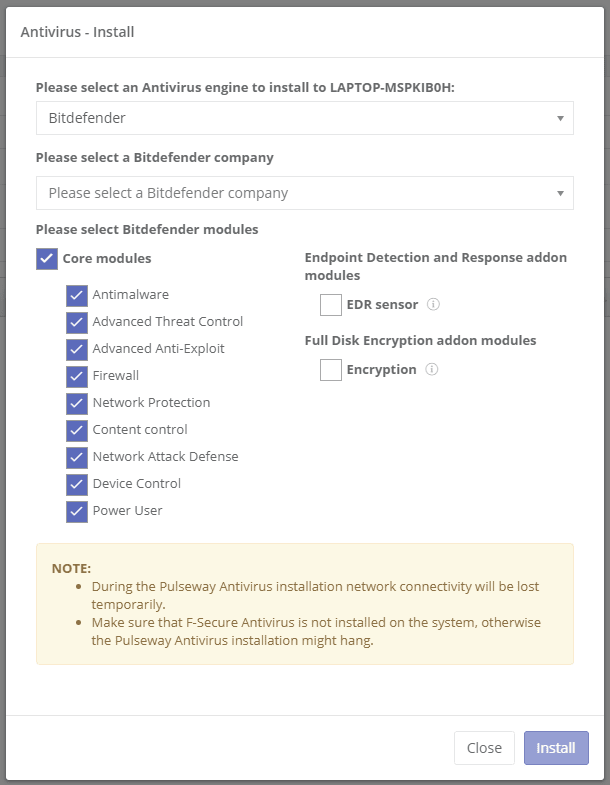
- 25 comments
- 31615 views
-
MacOS showing wrong version
- 2 comments
- 3911 views
-
URGENT: Service Disruption Notification
- 10 comments
- 6930 views
-
Trying to upgrade account
- 2 comments
- 3343 views
-
IT Glue is now integrated within Pulseway
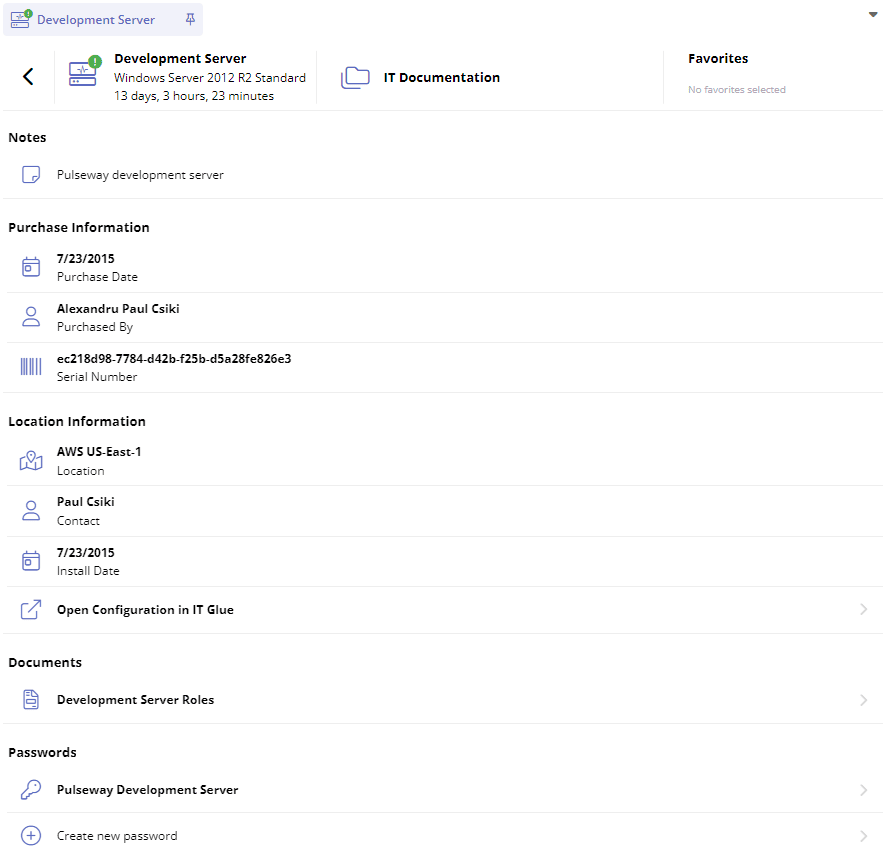
- windows
- configuration
- webapp
- android
-
Tagged with:
- 3 comments
- 12462 views
-
Trouble configuring endpoint policy Autotask integration
- 3 comments
- 5308 views
-
Your Account is Over Quota Error
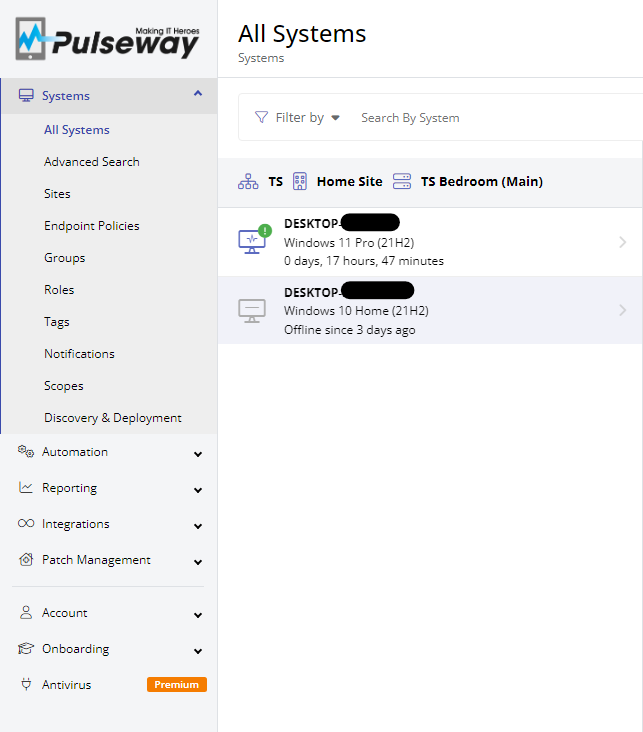
- 3 comments
- 4751 views
-
Remote Login for Windows, Allow End-Users to Disable Remote Control, and Remote Control Performance Metrics
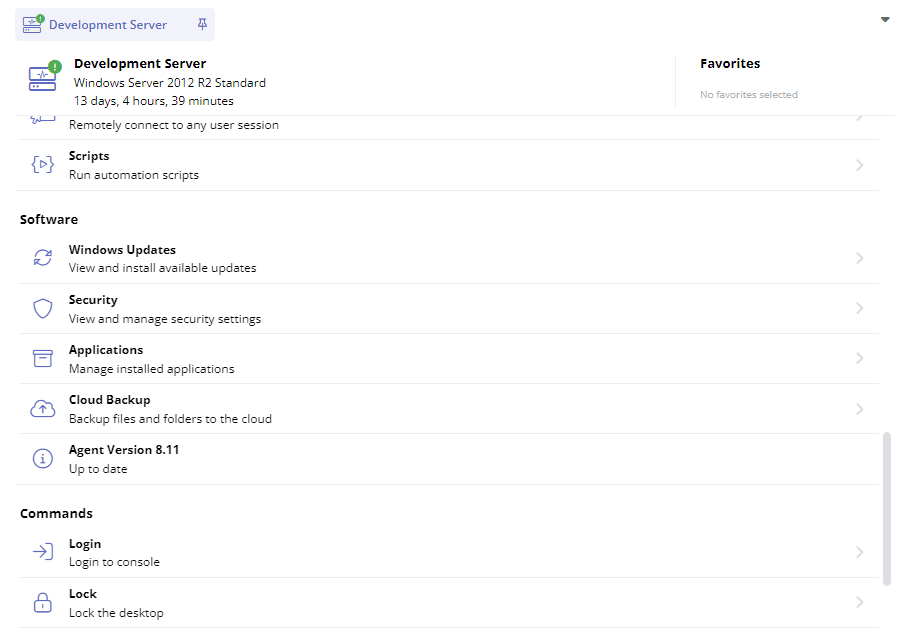
-
Hardware monitoring through REST API & PowerShell
- 1 comment
- 3971 views
-
Active Directory Discovery and Deployment
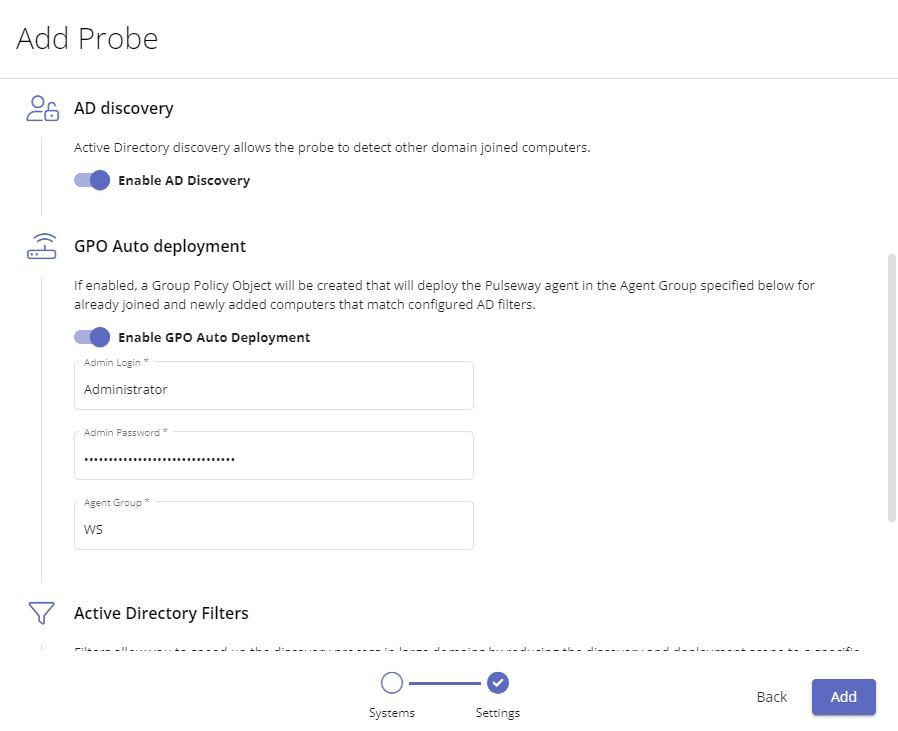
- 2 comments
- 8592 views
-
Group Policies updates
.png.2279c29643569a01bd918f482be30d7d.png)
- 10 comments
- 11868 views


_a9c1b4.png)
_49ee3f.png)

